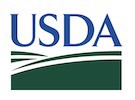The United Nations has dedicated 2021 to spreading the word about the importance of fruits and veggies.
The International year of fruits and vegetables highlights not only human nutrition but also the efforts of science and technology to improve sustainable production and reduce waste. Scientists in USDA’s Agricultural Research Service (ARS) support those efforts by joining international research projects.
One ARS scientist has stamped his “research passport” 17 times over many years through his international research collaborations. Kai-Shu Ling, a plant pathologist with the U.S. Vegetable Research Laboratory in Charleston, SC, has teamed with scientists on nearly every continent.
“My research focuses on seed-borne and emerging viruses that may potentially affect global seed trade and the movement of produce,” Ling said. He and his partners also work to devise novel solutions for sensitive detection, early diagnosis, and effective management of plant diseases using integrated pest management strategies. They have worked on important crops like tomato, pepper, watermelon, melon, cucumber and sweet potato.
In addition to conducting research, Ling provides training to scientists from other nations, hosting them in his lab for three months to two years. He has also been part of an international effort to control whiteflies, which transmit over 300 plant viruses and cause at least $1 billion in crop losses every year.

 U.S. Department of Agriculture
U.S. Department of Agriculture